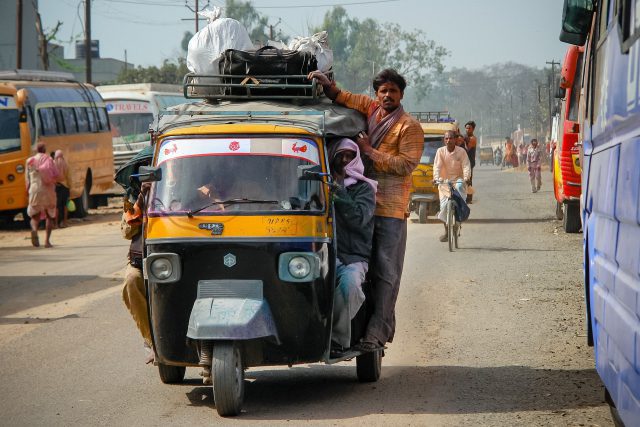When we think of taxis, the first thing that comes to mind is usually a black cab or private hire vehicle. But what passes as a standard taxi varies depending where you are in the world.
We have recently seen some interesting articles which got us wondering what’s the wackiest taxi you’ve ever seen?
We have previously looked at the reasons why passengers need to be able to tell the difference between various types of taxis. The most obvious reason in the UK is to distinguish between public hire taxis which can be hailed in the street or at a taxi rank, and private hire vehicles which must be booked in advance by phone, via an app or in person at a taxi office.
But that doesn’t mean that every black cab has to be black. Some drivers have colourful advertising such as Vodafone’s colourful Union Flag, while others may go for an entirely different colour scheme, such as silver or maroon ‘black’ cabs. These certainly stand out from the crowd, especially in a sea of black cabs plying their public hire trade.
When it comes to private hire vehicles, the appearance of the vehicle tends to be more conservative with a taxi firm’s branding often put on decals on the doors.
For those who want to take things a bit further, they need to ensure that any changes comply with the terms of their licence and private hire insurance as anything classified as too drastic could be seen as a modification. This could render a driver’s taxi licence or taxi insurance invalid.
When it comes to taxis abroad, everyone has their ideas of what is normal. In New York, the iconic big yellow taxi is as famous as black cabs are in London and Manhattan’s streets are a sea of yellow as the big cabs pick up residents and tourists alike and negotiate the busy streets.
They have pushed the boat out even further with the yellow water taxis that carry passengers up and down the country’s rivers.
There has been a rise in the use of rickshaws on our streets, especially in London, but they are nothing like as common as they are in countries such as Vietnam, Japan and India. These are usually pushed or pulled by pedal power and are a cheap way of getting around.
But there are also motorised rickshaws, such as the tuktuks used in places such as Thailand. These are more enclosed, offering better protection to passengers from the elements, as well as other vehicles.
And places such as Cuba, which is famous for its vintage large American vehicles, go that extra mile when it comes to taxis. It seems the bigger and brighter the better, with everything from pink convertibles to pastel yellows and green 1950s US land yachts. It seems that wherever you go in Cuba, you travel in style.
But the 21st century isn’t far away as Coco taxis are becoming more popular. The three-wheeled buggies resemble giant motorsport helmets and are powered by a moped in the back.
In South Africa’s Cape Town, there is a fleet of brightly painted pink taxis that aim to raise awareness about breast cancer and support for breast cancer charities.
Meanwhile in Tokyo, there are taxis that are designed to look like various animals, including elephants, giraffes, and hippos.
We all like to stand out from the crowd and if you are a taxi driver, that can be great for business.
But how far would you go to make your taxi stand out?
Some of the taxis mentioned within our article can bee seen below:










